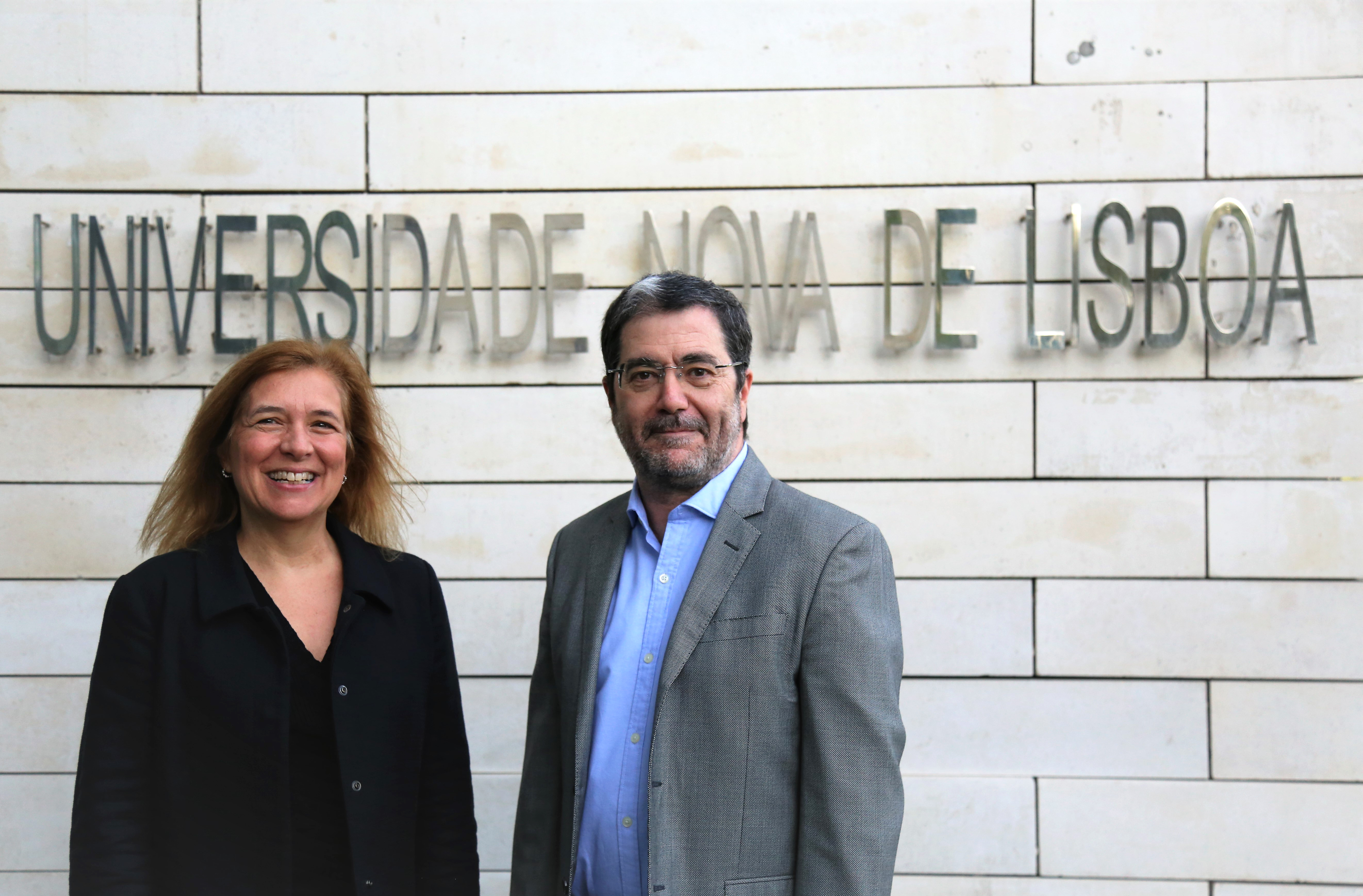NOVA receives ERC award to organize residencies for journalists
Oeiras, 13 April 2023
ITQB NOVA professor Ana Sanchez and NOVA FCSH professor António Granado are part of the European consortium awarded 1.5 million euros by the European Research Council (ERC) to implement a project of residencies for science journalists in research institutions across Europe. The project, called FRONTIERS, will run from 2023 to 2027, and aims to promote journalistic independence and coverage of cutting-edge research, such as the kind usually supported by the ERC.
This is the first time the ERC opens such a call. “Quality journalism is necessary to safeguard democracy, which is our collective responsibility. All institutions and bodies should contribute, and the ERC is certainly no exception”, says ERC President Maria Leptin. "I hope we can send a strong signal to the research and media communities – and beyond."
During the duration of FRONTIERS, three rounds of applications will be announced for journalists at a European level. The proposals will be evaluated with the help of an independent commission and the winners will then sign an agreement to fully dedicate themselves to the project for the period necessary for its implementation. Between 30 and 40 residencies will be funded for the duration of the programme.
"To participate in this programme, journalists will have to submit an application to carry out a residency of three to five months in a European scientific institution", explains António Granado. "The proposal must come from the journalist, and the consortium will provide the financial conditions for its implementation".
Scientific institutions in any field of knowledge will be invited to express their interest in hosting the journalists and to create the necessary conditions for the implementation of the project. One aim of this initiative, which includes a training program on independent and ethically responsible coverage of science, will also be to promote mutual learning between scientists and journalists.
"The journalists' proposals may cover all kinds of journalistic work, book projects or any other type of cutting-edge science dissemination productions", explains Ana Sanchez. "Throughout this time, we also hope that the public and policymakers can have a more concrete contact with European science."
The NOVA team has been coordinating the University's Master's in Science Communication since 2011, created with the support of the then ITQB NOVA’s Dean, Martinho Simões, and of the current Rector, who, at the time, ran NOVA FCSH. "It is a huge pride for NOVA to see the results of the collaboration between two of its schools, FCSH and ITQB, including its Master in Science Communication and its spin-off, the '90 Seconds of Science' programme, recognised internationally, at the highest European level, with ERC funding," says João Sàágua, Rector of the NOVA University Lisbon. "Congratulations are in order to the academics who are leading this collaboration and to their schools”.
 Cláudio M. Soares, ITQB NOVA Dean, agrees. “Ana Sanchez and António Granado have been running a very successful partnership between ITQB NOVA and NOVA FCSH for a period of over 10 years. We believe that partnership was crucial for presenting a winning proposal in a call that would have only one winner among the several presented.”
Cláudio M. Soares, ITQB NOVA Dean, agrees. “Ana Sanchez and António Granado have been running a very successful partnership between ITQB NOVA and NOVA FCSH for a period of over 10 years. We believe that partnership was crucial for presenting a winning proposal in a call that would have only one winner among the several presented.”
NOVA will be responsible for all the communication of the project and will hold the final FRONTIERS conference on its premises. At the conference, a guide based on the FRONTIERS experience will be presented, which can be used by other institutions interested in replicating a similar residencies project.
Besides Universidade NOVA de Lisboa, the FRONTIERS consortium also includes Universidad Pompeu Fabra (Spain), the Centre for Ethics in Science and Journalism (Italy) and Enspire Science (Israel), which coordinates the project.







